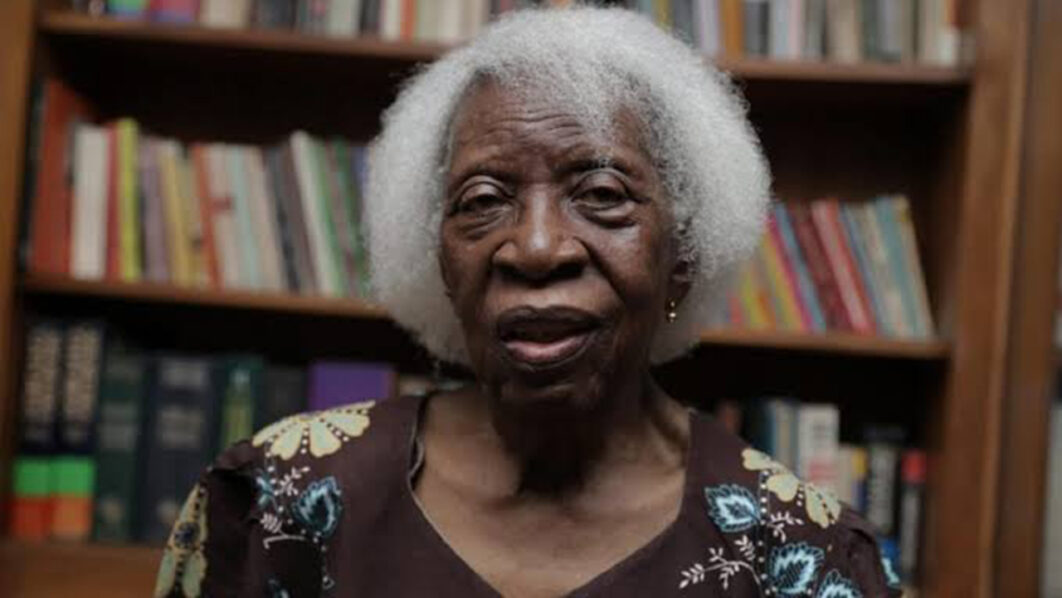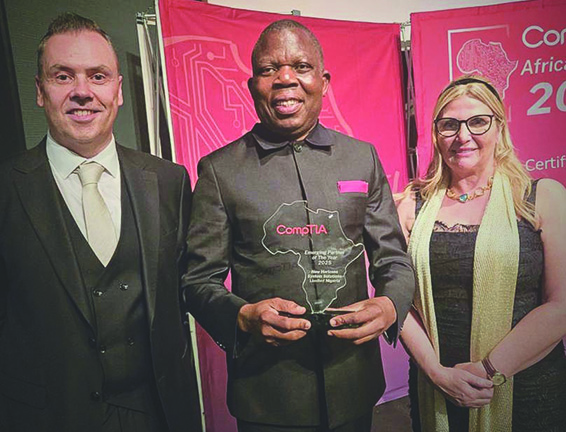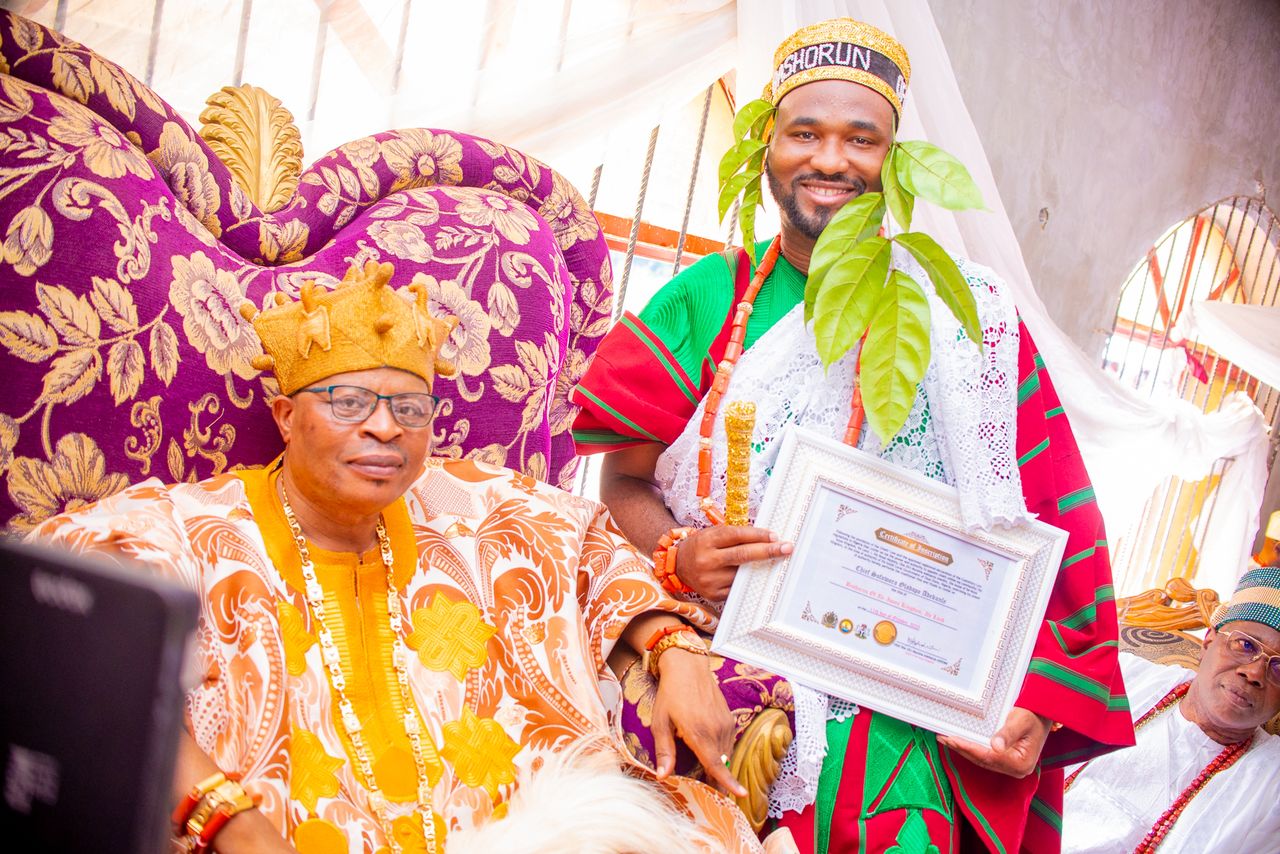
It was as if she waited to have her last dance. That was in February, when the literary community took over the J Randle Centre for Yoruba Culture and History in Onikan, Lagos to celebrate the matriarch.
The news of her death at the age of 95 on March 6, 2025, represents another sad loss to the literary community, which has bid farewell to so many of the first generation of writers. She was highly talented, humble, passionate, hard-working and highly impactful to the younger generations.
In a statement, her family expressed gratitude for a life dedicated to excellence, describing her as a versatile media personality who made significant contributions to literature, broadcasting, and sports. They also noted that funeral arrangements would be announced in due course.
“It is with gratitude to God for a life well spent in the pursuit of excellence in Literature, Broadcasting and Sports that we announce the passing of our beloved mother, grandmother and great grandmother, Mabel Dorothy Okanima Segun (nee Aig-Imoukhuede) in the early hours of March 6, 2025,” the statement read.
At the birthday celebration tagged, ‘Celebrating the Legend @ 95: The Multifaceted Artistry of Mabel Segun. A Life of Literary Excellence and Sportsmanship’, several Nigerian writers and other literary enthusiasts took an inspiring trip into the creative and ideological worlds of Mabel Segun.
From the Nobel Laureate, Professor Wole Soyinka to the Poet Laureate, Professor Niyi Osundare; Professor Akachi Ezeigbo, Dr. Bunmi Oyinsan, Mrs Mobolaji Adenubi, Dr Wale Okediran, Professor Olu Obafemi and Dr Kayode Aderinokun and other celebrated writers, everyone had a revealing thing to say or learn about her.
The event, which was anchored by Dr Lookman Sanusi and Sola Alamutu, had the poet and journalist Akeem Lasisi thrill the audience with a poetic rendition, entitled, This is not a Tribute to her Wondrous Life.
Mabel Segun’s 95th birthday celebration was a profound reflection of her rich and multifaceted life—a true gathering of reverence, recognition and reflection.
Soyinka’s tribute captured her pioneering spirit and the way she shattered barriers long before the term “feminism” was widely used. Reflecting on their time at the University of Ibadan, he recalled how Mabel embodied the essence of equality. He compared her to a player in a soccer game, saying, “While some are busy looking for a ladder to climb over the wall and retrieve the ball… one of you had already climbed over the wall, retrieved the ball, tossed it back to your yard and followed the game by the same route. That person would be Aunty Mabel.”
In Prof. Osundare’s tribute to Mabel Segun, he emphasised her immense impact on Nigerian literature and society, highlighting her pioneering role as a female voice in a predominantly male-dominated literary landscape.
He noted that while iconic male figures like Soyinka, Christopher Okigbo, JP Clark, and Gabriel Okara dominated the literary scene, Mabel was a crucial female voice among them. He said, “Fortunately there was a female voice around them – and that was our own Mrs Segun.”
This underscores the unique and vital role Mabel played in enriching Nigerian literature with her distinct perspective, especially during a time when the literary world was largely male-dominated. Osundare also highlights Mabel’s role as a trailblazer, noting that she was often the only woman in the company of influential male writers.
President Bola Tinubu has expressed sorrow over the passing of renowned Nigerian writer, poet, and playwright Mabel Segun, who died on Thursday at 95. In a statement issued on Friday by his Special Adviser on Information and Strategy, Bayo Onanuga, the President extended his condolences to the family of the literary icon, as well as to members of the literary community, friends, and admirers of the late author.
“The President also commiserates with members of the literary community, friends, and fans of the renowned writer,” Onanuga said. Segun, a pioneer of children’s literature in Nigeria, dedicated her life to literary excellence.
“President Tinubu mourns the illustrious writer and describes her extraordinary and enduring impact on Nigeria’s literary landscape over decades,” Onanuga stated.
The President acknowledged Segun’s immense influence on generations of writers and students, emphasising that her works would continue to inspire literary excellence in Nigeria and beyond.
“President Tinubu prays for the repose of the literary icon’s soul and divine comfort for her family,” the statement concluded. Born in 1930 in Ondo town, Mabel Segun comes from a literary family: the Aig-Imoukhuede family of Sabongidda Ora in Edo State. Her father, Reverend Isaiah Aigbovbioise Imoukhuede, who adopted the surname Aig-Imoukhuede, wrote the first Ora primer, a short history of Ora and was translating the Yoruba Hymn book into Ora when he died at the age of 39.
He had also composed the first verse of the well-known Yoruba song, lwe Kiko, which was inspired by his farming background. Although she was only eight when her father died, because they were close, he had exercised a great influence over her. Her industry, her creativity and her humanity all stem from this source. Mabel’s two brothers are also creative writers while her sister was a household name in the 1960s as a children’s television producer.
Her father was an instinctive humanitarian. In the book, My Father’s Daughter, she paid tribute to him. The grandmother of Nigerian literature in an interview on her 90th birthday; told The Guardian, “when I wrote My Father’s Daughter, some people said it was too good to be true; but it couldn’t be too good to be true, because if you set your mind in good things, you will do good things. I think they are just jealous; it’s human nature. I found such inside me and it will always be inside me. That is why I will not steal because he was a clergyman and he believed in what he preached. Fifty years after his death, he was promoted. I don’t know how many people who were promoted after they were dead. My father was promoted from an ordinary reverend to archdeacon. All should emulate my father, but now, people are very selfish. This is what is killing us in Nigeria. We are very selfish.”
From 1938 to 1941 Mabel Segun received her primary education in St Peter’s School, Edunabon, Akoko Jubilee Central School, Ikare, St Paul’s School, Ikole and St David’s School, Akure. From 1942 to 1947 she attended the oldest girls’ school in Nigeria – C.M.S. Girls’ School, Lagos, founded in 1869. She left with a Grade 1 Cambridge School Certificate with exemption from London Matriculation. At the school, she made her mark as the first pupil-librarian when the teacher-librarian, exasperated by the constant demand of this avid reader for more and more books, handed over the keys to the library.
She showed early promise both as a writer and as a sportswoman at the newly founded University College, Ibadan where she was admitted in 1949 into the second set of students. She graduated in 1953 with a second class London Bachelor of Arts Degree in English, Latin and History. She was deputy editor and advertisement manager of the University Herald with Chinua Achebe, her classmate as editor, and contributed poems, short stories and articles to that pioneer students’ magazine. A short story, The Surrender, which she wrote in the year of her graduation, won the maiden edition of the Nigerian Festival of the Arts Literature Prize the following year, 1954.
While earning her living in the various establishments, Mabel Segun found time to engage in many other activities that have made her a household name in the country. She has written, co-authored and edited eleven children’s books including the classic autobiography My Father’s Daughter and its sequel, My Mother’s Daughter, both of which have formed the subject of University theses and literary articles in Nigeria and overseas.
Mabel Segun’s stories and poems have been published in over 30 anthologies in Nigeria and abroad. They have been translated into German, Danish, Norwegian, Greek and Serbo Croat. Two of her children’s books have been translated into Swahili and Arabic.
In 1983, her name was inscribed upon the Roll of Honour of Men and Women of Distinction published by Cambridge International Biographical Centre. She was also listed in the “Outstanding People of the Twentieth Century” including 2000 outstanding writers of the 20th Century published by Cambridge International Biographical Centre in 2001.
“I still pay tribute to my English teacher, Mrs. Ore Cole, who taught me how to become a writer. It makes you wiser and more intelligent. When you read a lot you eventually want to become a writer,” Mabel Dorothy Segun, a versatile woman whose outstanding achievements in the fields of literature, broadcasting and sports have won her local and international recognition, said in the earlier interview.
The first Nigerian woman to play table tennis, she became an honourary male by entering for Men’s Singles tournaments and was awarded the University’s Table Tennis Half Colour. One moment she didn’t like remembering is when she left Children Literature Association of Nigerian (CLAN).
“The association died because the burden was too much on me that time. Other people came into it for selfish reasons. I haven’t told anyone this, but I think it is time for me to say it. People came there for selfish reasons. They have never written anything before, and so, they decided not to be productive. One of the staff came to me one day and said she was going to the hairdresser and she needed money. I asked her for what? Money for hairdresser? I’ve never heard this. Yet, there was somebody else, who said I should not pay him for his work as a resource person,” she said.
She added, “there were many who couldn’t even write very well. Next time, when I want to set up a thing like this, I will make sure you have written one or two books before becoming a member of the association. So, anyway, I became so ill due to over work.”






